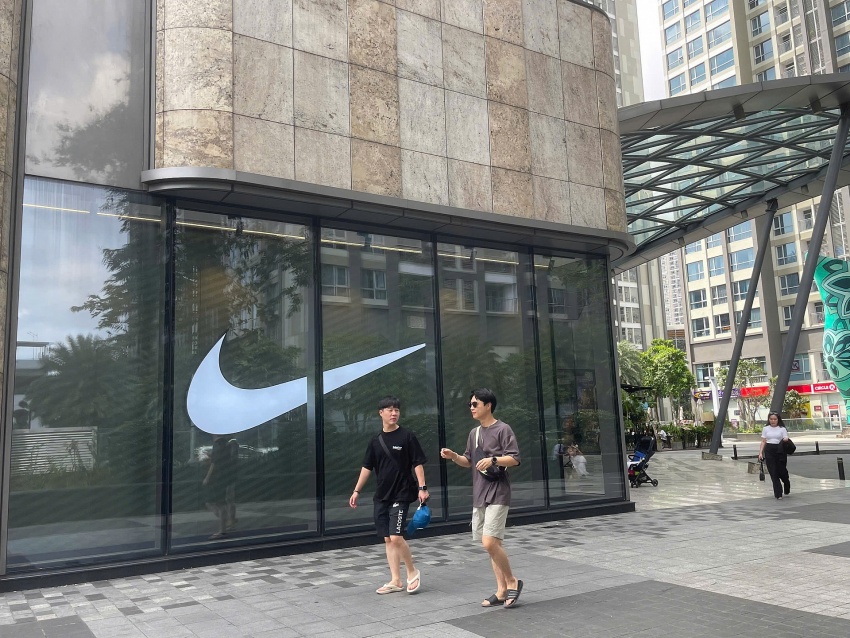Foreign employers propose work permit solutions
Currently, Ho Chi Minh City requires companies to submit new work permit applications after previous applications have been completed. That is, rolling applications are not allowed to be submitted and reviewed.
This has caused significant delays in bringing foreign employees into Vietnam.
"Among the cities and provinces we know, Ho Chi Minh City is the only place that requires applying for a work permit in batches. In fact, how often or when a business needs to apply for a work permit depends on their own business needs. We need to react faster so we can get through the approval process. The current batch approval policy creates backlogs and additional challenges for the business," Nike explained in its list of recommendations list sent to Ho Chi Minh City People's Committee.
Another issue concerns the recruitment process. In Ho Chi Minh City, businesses are required to interview three candidates selected by and report the result to Ho Chi Minh City Department of Labour, Invalids, and Social Affairs.
According to Nike, this requirement poses a number of challenges. First, for the competent authority, it creates a large backlog and workload for public officials, and it is a challenge to find the right employees to evaluate thousands of different job requests across many fields, many of which are certainly beyond the understanding and knowledge of one employee.
Second, on the business side, it is delaying the recruitment process, and the recruitment company can no longer recruit the people they judge to be the most suitable for the job.
"Posting job advertisements through the government portal is required by law to encourage the recruitment of local talent, which is the right thing to do. However, in other provinces that we know, they are following Decree No.70/2023/ND-CP without adding the requirement that businesses must interview three candidates selected by competent authorities and report the interview results to competent authorities," Nike said.
 |
Meanwhile, KPMG's list stated that according to the provisions of Decree No.152/2020/ND-CP, foreign workers who are not subject to work permits include, "Students at foreign schools and training centres abroad with internship agreements in agencies, organisations, and businesses in Vietnam."
According to the provisions of Article 59 of the Law on Higher Education No.08/2012/QH13, learners are people who are studying and doing scientific research at higher education institutions, including programmes for students of college and university training, and masters and PhD students.
Currently, Ho Chi Minh City Department of Labour, War Invalids and Social Affairs believes that students do not include students of master's training and graduate students of doctoral training courses, meaning they cannot request a certificate of exemption from work permission while in the reality, these subjects can still have internship agreements in Vietnamese agencies, organisations, and businesses.
"We recommend that this situation is reconsidered so students of the master's training and graduate students of the doctoral training programmes can be granted work permit exemption certificates like other students," KPMG added.
However, up to now, the Ministry of Labour, Invalids and Social Affairs (MoLISA) has stopped receiving applications but both Ho Chi Minh City People's Committee and the Ho Chi Minh City Department of Labour, Invalids and Social Affairs have not yet begun to receive and process these applications.
It is recommended that the committee and the department should coordinate to resolve this issue as soon as possible because there are many urgent documents from businesses that need to be submitted.
In the neighbouring province of Binh Duong, VBF's Human Resources Working subgroup also pointed out that the local Department of Labour, War Invalids and Social Affairs does not recognise the working format and description of directors, executive directors, experts and technicians as prescribed in Decree 152.
In other cities and provinces, this format is used by businesses when assigning an employee to work for a branch of the same company, which is not the parent company of the Vietnamese legal entity and therefore that is not considered an internal transfer under Vietnamese law, according to the subgroup.
What the stars mean:
★ Poor ★ ★ Promising ★★★ Good ★★★★ Very good ★★★★★ Exceptional
 Tag:
Tag:
Related Contents
Latest News
More News
- Masan Consumer names new deputy CEO to drive foods and beverages growth (February 23, 2026 | 20:52)
- Myriad risks ahead, but ones Vietnam can confront (February 20, 2026 | 15:02)
- Vietnam making the leap into AI and semiconductors (February 20, 2026 | 09:37)
- Funding must be activated for semiconductor success (February 20, 2026 | 09:20)
- Resilience as new benchmark for smarter infrastructure (February 19, 2026 | 20:35)
- A golden time to shine within ASEAN (February 19, 2026 | 20:22)
- Vietnam’s pivotal year for advancing sustainability (February 19, 2026 | 08:44)
- Strengthening the core role of industry and trade (February 19, 2026 | 08:35)
- Future orientations for healthcare improvements (February 19, 2026 | 08:29)
- Infrastructure orientations suitable for a new chapter (February 19, 2026 | 08:15)





















 Mobile Version
Mobile Version